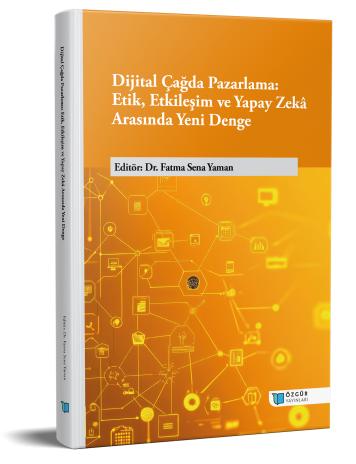
Sustainability-Oriented Integrated Marketing Communication
Chapter from the book:
Yaman,
F.
S.
(ed.)
2025.
Marketing in the Digital Age: A New Balance Between Ethics, Engagement, and Artificial Intelligence.
Synopsis
Escalating global environmental crises, social inequalities, and resource constraints are transforming marketing from a purely sales-oriented tool into a discipline that must develop sustainability-oriented integrated communication strategies. This study examines how organizations structure their environmental and social responsibilities as communicative value within the intersection of sustainability principles and the Integrated Marketing Communication model. Theoretically, it emphasizes that sustainability communication evolves through the axes of green marketing, ethical consumption, and corporate social responsibility, while integrated marketing communication strategically integrates these dimensions under a unified framework. Practically, new tools such as digitalization, social media, and data analytics strengthen sustainability messages and enhance consumer awareness, brand trust, and environmental consciousness. However, the phenomenon of greenwashing emerges as a significant ethical issue that threatens brand credibility. The adverse effects of greenwashing on consumer trust, brand reputation, and stakeholder relations necessitate redesigning IMC strategies around transparency, accountability, and consistency. The study argues that the future of sustainable branding will be shaped by technologies such as artificial intelligence, the metaverse, and augmented reality, which foster responsible communication capacities through data-driven ethical governance and digital traceability. By bridging sustainability and IMC literature, this study proposes a new research axis at the intersection of communication, ethics, and innovation, offering both a strengthened conceptual foundation and a strategic roadmap for practitioners and brand managers.

